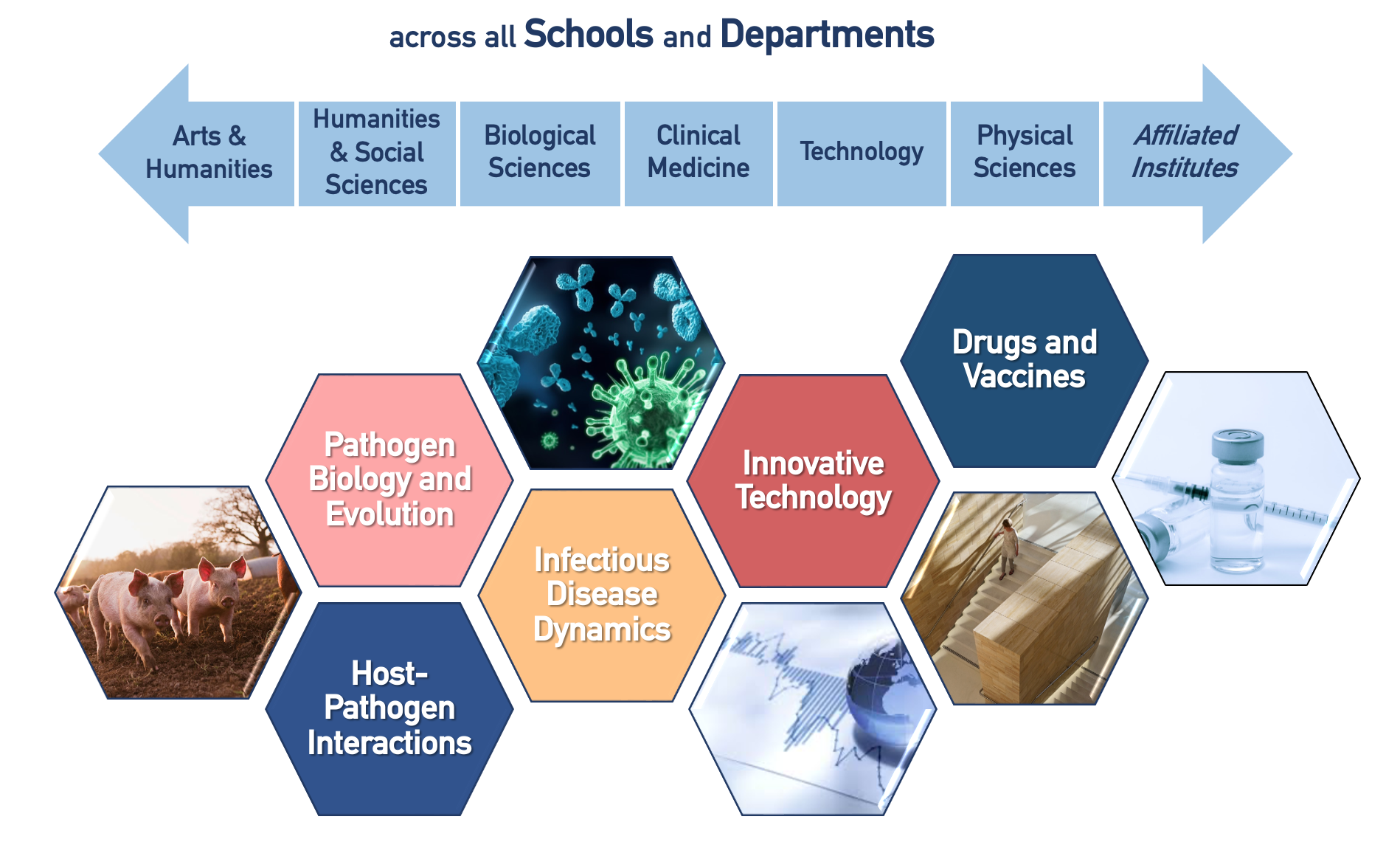
Giving your research output visible global influence.
| Our members are involved in a huge variety of linked research initiatives. Below we have highlighted a selection of current pan-University interdisciplinary programmes relating to global infectious diseases research, which have garnered strategic support through Cambridge Infectious Diseases IRC, and which span multiple departments and involve collaborations with partners outside of the University. |
The University of Cambridge is at the forefront of the search for systems-based solutions to some of the world’s most pressing problems, seeking to be a global force for positive change. According to the World Health Organization (WHO), approximately 14 million people globally die each year from infectious diseases (i.e. one-fourth of total annual deaths). In all world sectors, infectious disease morbidity severely compromises not only the health of populations but also impacts economic productivity and social stability. See how our researchers are improving the lives of people around the world by finding solutions to reduce the global burden of infectious diseases and improve planetary health.
- Pathogen Biology and Evolution. Evolution is a key aspect of the biology of many pathogens, driving processes ranging from immune escape to changes in virulence.
- Host-Pathogen Interactions. Understanding the mechanisms of pathogenesis caused by bacteria, viruses and parasites plays a key role in understanding infectious diseases.
- Infectious Disease Dynamics. Epidemiology and Mathematical Modelling provide vital mathematical and statistical tools to study the spatial spread of epidemics in populations.
-
Drugs and Vaccines. Vaccines and the discovery of new antimicrobial drugs are effective means for controlling infectious diseases.
- Innovative Technology. Enabling innovation and access to health technologies remains a key strategy in combating infectious diseases in low- and middle-income countries (LMICs).
Tackling specific diseases
Our researchers often focus on a particular disease-causing pathogen and study all their biology, disease dynamics, and their management methodologies. Some of Cambridge Infectious Diseases more popular pathogens are tuberculosis, malaria or HIV.
One Health and the threat of Antimicrobial Resistance
The One Health approach seeks optimal health outcomes recognising the interconnection between people, animals, plants, and their shared environment. One of the most challenging threats is Antimicrobial Resistance (AMR): pathogens are becoming increasingly resistant to our current arsenal of antimicrobial drugs. We need to better predict, prevent and manage the impact of AMR. To achieve this aim we need novel complex solutions that span a broad range of disciplines, which require coordinated and collective global action. These are some of our groups working on Antimicrobial Resistance.

